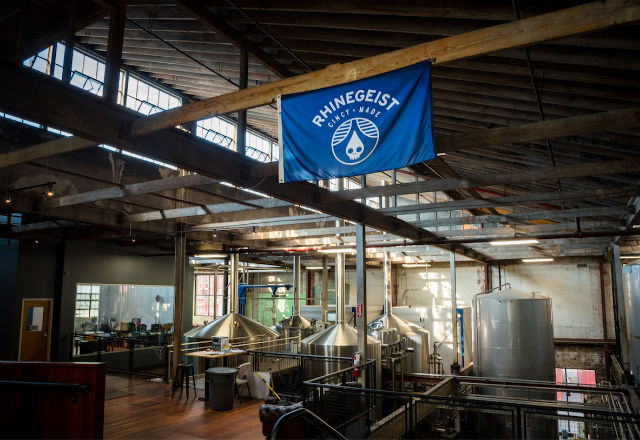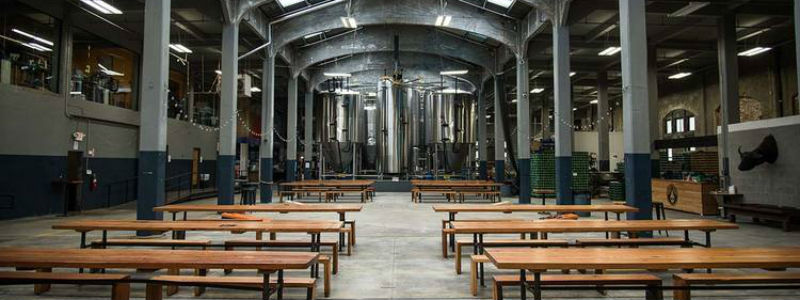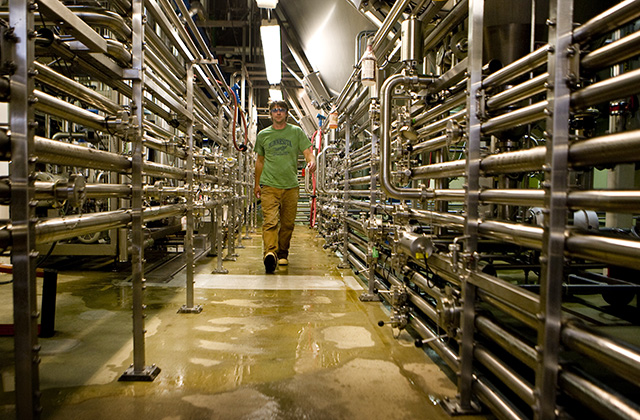
In its short time of five years, Rhinegeist Brewery in Cincinnati has grown many ways. One not seen by mere barrelage or dollars and cents in knowledge.
The brewery strives to have all their employees be certified beer servers and they encourage many to further that to be Cicerones as well. Of course, it may be a slight cost to the endeavor and time will be needed, but it can be a worthwhile education for employees in all levels.
“We want to make it accessible for people that might not even have worked in beer before,” explained Rhinegeist’s Director of Education, Chris Shields at the 2018 Ohio Craft Brewers Association conference. “As you grow, not everyone is going to come from beer. Your accountant may just be an accountant that isn’t into beer, they are just joining that journey into beer and that’s why they joined your team.
“They need some background and help to get started.”
Shield shared some tips on getting a education program started for any brewery.
- Start small: “Even something as simple as buying books to have for a library at the brewery is simple and everyone can do,” Shields said.
- Investment into culture and commitment: “If I am going to stand in front of employees to do education programs, everybody has to do it, that includes management,” Shields said. “It includes people who are extremely busy but if your new hires see that commitment from leadership, then they will internalize that importance.”
- Shadow a brewer: It’s a great way to bring in someone you have brought on that doesn’t have a lot of experience in brewing. “So much can click by just watching and being hands on,” Shields said. He said the brewery set up a program to bring in two people to work with the brew team. Building a training document to give a week before helps so the new hires can ask questions and understand. “So when they are up there brewing, it’s not just them hanging out and dumping in hops,” Shields said. “They understand the flow of work through the system.”
- Tastings: Whether its QAQC, blind market or preference tastings, incorporating outside of the brewhouse staff is helpful. “It’s great to bring in people from other departments because they represent the community and the marketplace,” Shields said. “You learn the strengths of the people in the building. Some of the best tasters aren’t on the brew team. They may not be the most trained or most experienced and have the best vocabulary for beer, but they have amazing palates.”
- Sensory: “Sensory can be tough, you are asking people to stop what they are doing and do more work,” Shields said. “But it’s amazing by showing some recognition — even by giving a pin to trusted tasters. It seems silly but it’s also a point of pride, they are a part of our quality program.”




Be the first to comment